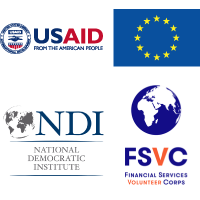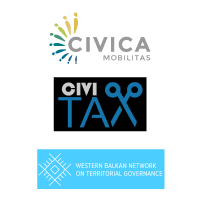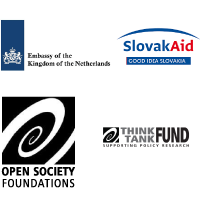ANALYSIS: The effectiveness and sustainability of the civil society networks
It is generally accepted that the CSO networks are civil society groups, organizations and sometimes individuals who associate voluntarily to achieve common goals for social development or to promote democratic governance. These goals may involve a wide range of activities and undertakings such as sharing resources, addressing common social challenges, as well as expressing community or social group’s identity. By associating in civil society networks, members typically retain their basic autonomy, their own identity, and their mission and work. Civic groups and organizations form networks to achieve common goals towards social development and democratic governance that they cannot achieve by themselves.
- The networks’ management structure is diverse, however, all networks preserve a democratic form of governance, with all social and legal norms within their management structures. Networks can be grouped according to the way they are managed as: 1) informal guidance/leadership 2) representative informal or formal management and 3) coordinated and formal leadership/management. Membership is generally on a voluntary basis and each of the members aim at preserving one’s own identity.
- The legal formalization of the networks in the Republic of Macedonia tends to indicate a trend among the larger and older networks. Formalization provides greater sustainability, credibility and policy-influencing structure at the national level. The most common form of formalization as a legal entity is the form association of citizens.
- According to the scope, the networks can be broad and specialized in specific sectors and issues they are working on and may be grouped into three major groups: 1) horizontal complementary networks, 2) horizontal general networks and 3) vertical / sector based networks, specializing in given question/area.
- The most common reasons that motives networking within national networks are primarily: a) effective and efficient advocacy, followed by the need for b) exchange of resources and knowledge, and to a lesser degree need for increasing the human capacities, expression of an identity or as an answer to a donor requirement.
- Sustainability of the networks is a major challenge and equally great for each of the networks. The financial resources and their predictability are a key sustainability element. At the same time, the enthusiasm and commitment of the individual member organizations are also important elements. It is of essence for the sustainability of the networks to be based on a strategic planning where all members contribute.
- Advocacy is a key motive for networking in Macedonia, and the perception of the member CSOs indicates the need for even greater efficiency and effectiveness of the advocacy processes. In that sense, an enhanced use of evidence in the advocacy process is needed. The CSO networks, as well as the CSOs individually, have limited impact over the policies and the citizens in general, this is partly due to policy making processes in the Republic of Macedonia; the civic space for the CSOs (the possibility of giving own insights while faced with obstacles and re-examination), but often it depends on the capacities of CSOs. Therefore, more intense evidence-based advocacy would contribute to the effectiveness of the networks, as well as to their legitimacy.
- The need for donor support is evident to ensure an environment of free civil sector actions, as well as greater transparency of the policy making processes while increased involvement of the civil society sector. Donors should continue and more intensely assist with initiatives supporting the “pressure” over the policy-makers, to provide more freedom and increased civic space and inclusion, as well as to diversify their support, accompanied by financial support for inclusion in the process of carrying and evaluating the policies.
- There is a need for strengthening the position, credibility and actions of the networks, in particular the networks that will address advocacy and monitoring of local policies. Networking at a local level, for the purposes of advocacy, is considerably weaker compared with the national level, which is a reflection of the lower degree of development of the civil society locally. Building the capacities of local networks, especially in the area of advocacy, is compulsory.
The full publication is available on this link
This publication was made possible with the support of CIVICA MOBILITAS within the project “Fiscal Decentralization for a Better Regional Development of the Civil Society” implemented by the Center for Economic Analyses.
The content of this publication is the sole responsibility of the Center for Economic Analyses and can in no way be considered to reflect the views of CIVICA MOBILITAS, the Swiss Agency for Development and Cooperation (SDC) or the organizations that implement it.
Other authors are required to cite this research if they have used or been informed by this research and publication.















